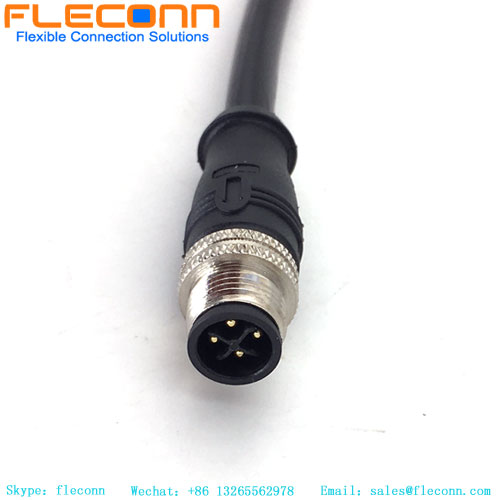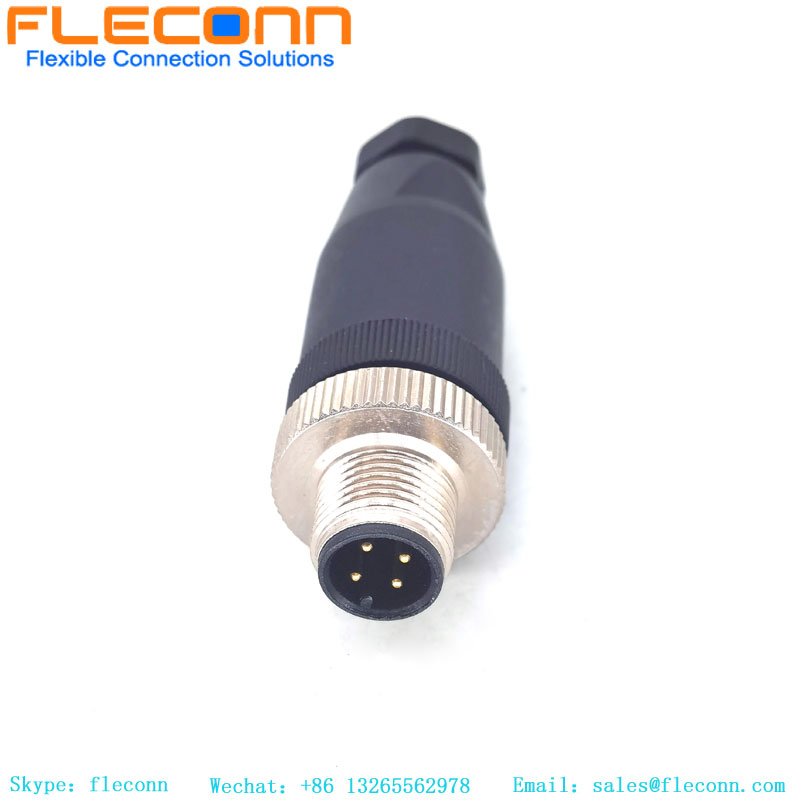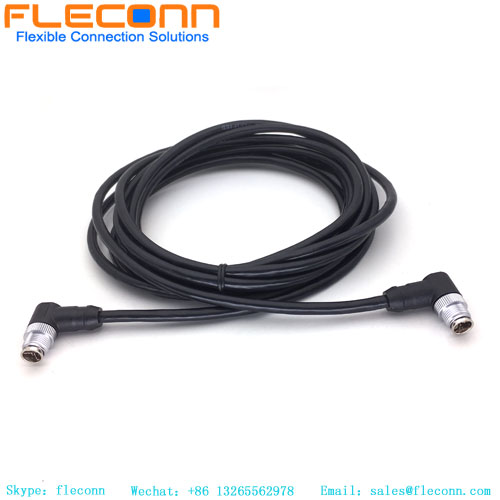Connectors are essential components in various industries, enabling reliable and efficient transmission of power, signals, and data. Their applications are vast, covering automation, transportation, medical devices, and more. Below is an overview of connector applications in industries:
1. Industrial Automation
Sensors and Actuators: Connectors like M8 and M12 are widely used to link sensors (temperature, proximity, photoelectric) and actuators to control systems.
Robotics: Connectors transmit data and power to robotic arms, motion control systems, and end-effectors.
I/O Modules: Connectors link PLCs and I/O modules for seamless control in automated systems.
Fieldbus Systems: Used in protocols like PROFIBUS, DeviceNet, and EtherCAT to ensure reliable data communication.
2. Automotive and Transportation
Wiring Harnesses: Connectors organize complex wiring in vehicles, enabling connections between sensors, engines, and infotainment systems.
ADAS and Sensors: Critical for radar, LiDAR, and cameras in Advanced Driver Assistance Systems (ADAS).
Rail Systems: Used in signaling, communication, and monitoring equipment in trains and metro systems.
EV Infrastructure: High-power connectors link charging stations to electric vehicles and manage energy flow in battery systems.
3. Medical Devices
Patient Monitoring: Connectors provide secure connections for ECG, EEG, and pulse oximeters.
Imaging Systems: Used in MRI, CT, and X-ray machines to ensure data integrity.
Wearable Devices: Compact connectors enable functionality in portable and wearable medical technologies.
Diagnostic Tools: Secure power and data connections in tools like blood analyzers and lab equipment.
4. Telecommunications
Networking Equipment: RJ45, coaxial, and fiber optic connectors are used in switches, routers, and base stations.
Data Centers: High-speed connectors manage data flow in servers, storage systems, and high-performance computing units.
5G Infrastructure: RF and fiber optic connectors are critical in antennas, small cells, and network backhaul systems.
5. Energy and Power
Renewable Energy Systems: Connectors are used in solar panels, wind turbines, and energy storage systems to handle high currents and voltages.
Smart Grids: Connectors enable communication and power transfer in smart meters and grid monitoring equipment.
Battery Systems: Used in energy storage solutions for reliable power distribution.
6. Aerospace and Defense
Avionics: Connectors link sensors, control systems, and communication equipment in aircraft.
Military Applications: Rugged connectors are used in weapons systems, radars, and field communication equipment.
Spacecraft: Designed to endure extreme conditions, connectors ensure functionality in satellites and space exploration systems.
7. Consumer Electronics
Mobile Devices: USB, micro-USB, and Type-C connectors provide data and power connections.
Wearables: Compact connectors facilitate connectivity in fitness trackers, smartwatches, and VR systems.
Home Appliances: Connectors integrate controls and sensors in devices like refrigerators, washing machines, and smart thermostats.
8. Food and Beverage Industry
Food Processing Equipment: Hygienic connectors with corrosion-resistant materials handle washdowns and chemical exposure.
Packaging Systems: Connectors support automation in bottling, labeling, and wrapping machines.
Quality Control: Link sensors for monitoring temperature, pressure, and contamination during processing.
9. Construction and Heavy Machinery
Earth-Moving Equipment: Rugged connectors link control panels, sensors, and motors in machinery like excavators and cranes.
Agricultural Machinery: Ensure reliable connections for GPS systems, sensors, and actuators in tractors and harvesters.
10. Marine and Offshore
Subsea Equipment: Waterproof connectors are used in underwater sensors, ROVs (remotely operated vehicles), and communication systems.
Shipboard Systems: Connectors integrate navigation, communication, and monitoring systems in vessels.
Key Advantages of Connectors in Industry:
Efficiency: Simplify assembly and maintenance by enabling easy connection and disconnection.
Reliability: Ensure secure connections, even in harsh environments with vibration, moisture, or dust.
Scalability: Support modular systems where components can be upgraded or replaced without significant rewiring.
Customization: Available in various sizes, pin configurations, and material options to suit specific applications.
If you’re exploring connectors for a particular industry or application, feel free to share your requirements, and I can help recommend suitable options!







